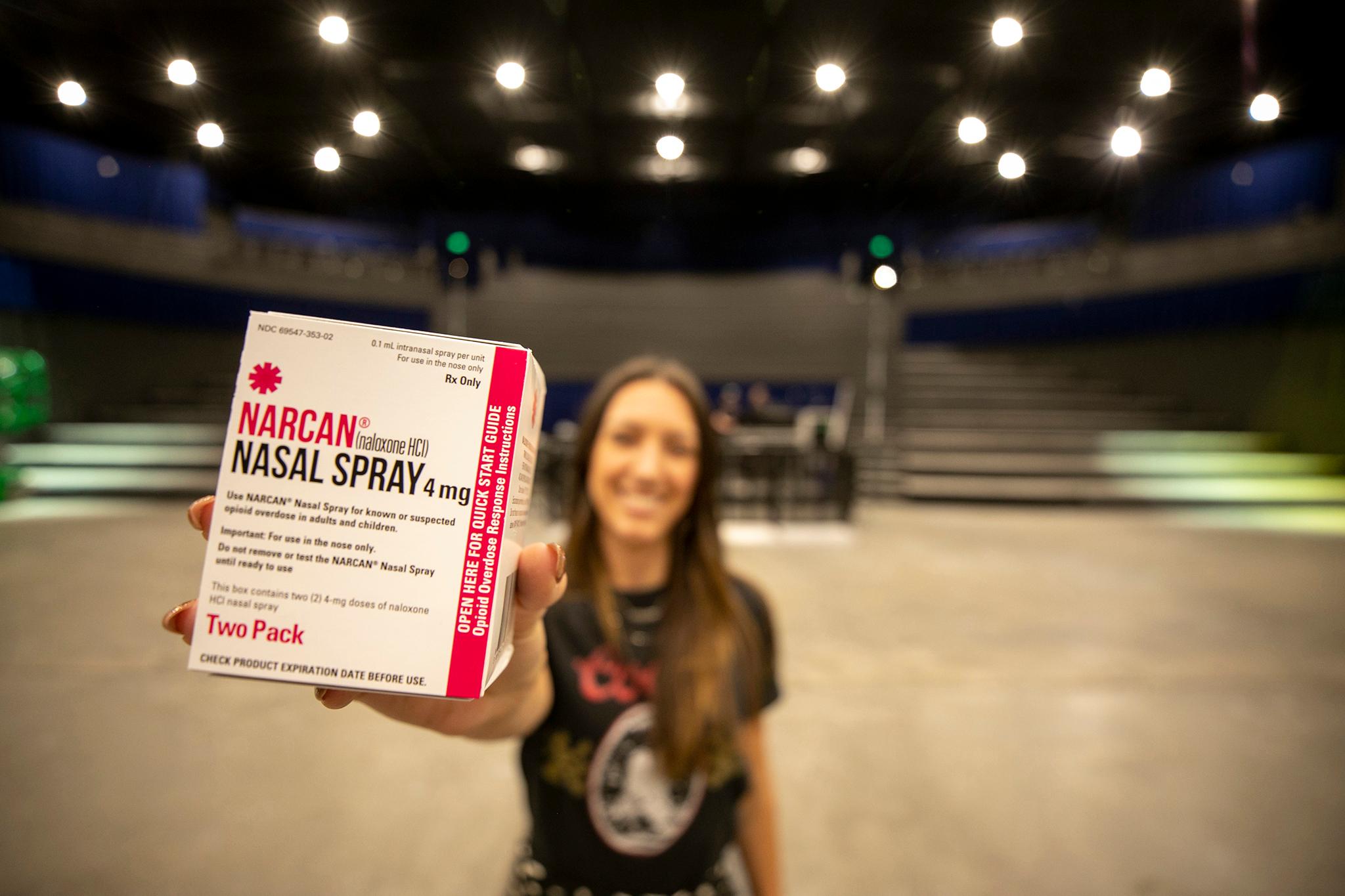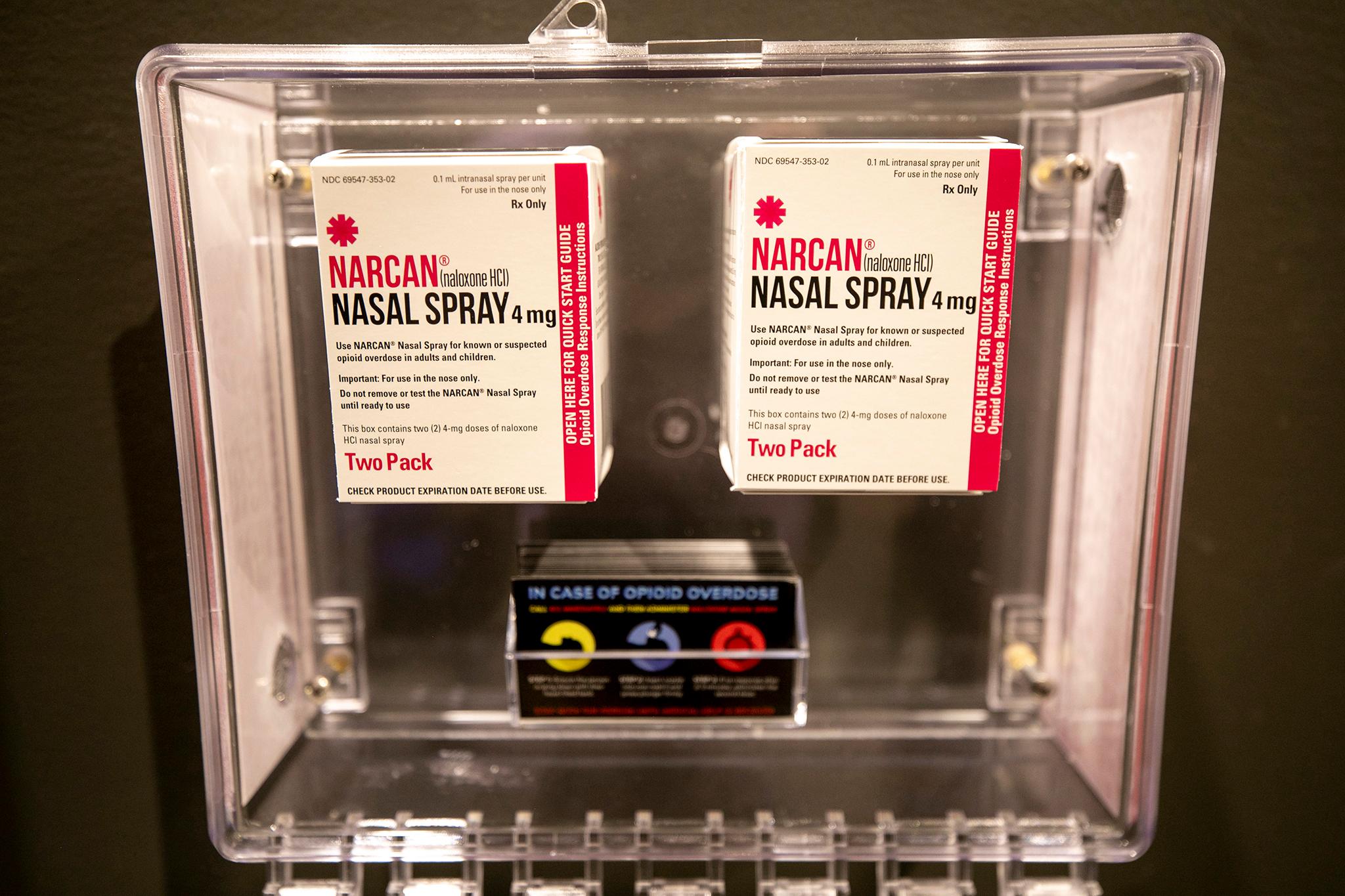Holding up a plastic box with bright red "Overdose Emergency" decals on the side and neon "Emergency Overdose Kit" lettering on the front, Mission Ballroom employee True Morse drills in the last two screws to secure it onto a wall in the venue.
Two white boxes of Narcan sit inside with small business cards sharing information for how to administer the potentially life saving, overdose reversal drug.
The venue and its management company AEG Presents Rocky Mountains have partnered with Keep The Party Safe, a drug awareness campaign, to install Emergency Overdose Kits containing doses of Naloxone for concert goers to access.
Each kit contains two boxes and four total doses of Narcan, a medication designed to rapidly reverse opioid overdoses, and instruction cards for how to administer the drug.
Bathrooms are also equipped with Keep The Party Safe signage attached to bathroom mirrors that share helpful information pertaining to the fentanyl overdose crisis.
Kits will be installed in other AEG venues across the city including The Gothic Theatre, the Bluebird Theater, the Ogden Theatre, Fiddler's Green Amphitheatre and 1ST BANK Center.

"This is something that we've talked about for a long time," said Kevin Anderson, General Manager of AEG Presents Rocky Mountains. "Narcan becoming available over the counter certainly changed the game and the conversation on our end. We thought, 'We can get some of these and have them on site.' That's when Keep The Party Safe reached out about a partnership and we were so on board to have somebody else who knows a lot more help us out."
Earlier this year, the U.S. Food and Drug Administration (FDA) approved the selling of the leading version of naloxone, Narcan, without a prescription. It's expected to be available later this year, but there is still uncertainty whether some insurances will cover the cost.

Making Naloxone available where people use drugs is welcome news, said Lisa Raville, Executive Director of the Harm Reduction Action Center.
"Truly people who use drugs are the true first responders in this overdose crisis," Raville said. "They need access to Naloxone first and foremost."
According to the Colorado Consortium for Prescription Drug Abuse Prevention, 920 Coloradans died from a fentanyl-involved overdose in 2022. In Denver alone, 453 people died from overdoses and more than 50% of those involved fentanyl.
"We are in the worst overdose crisis we've been in with the most unpredictable drug supply," Raville said.

For organizations like Dance Safe, a health and safety nonprofit that's committed to safe music and nightlife experiences since 1998, making Naloxone accessible is a step in the right direction. But not the only one that should be taken.
"Having more access to Naloxone across the board is a good thing. Period," said Rachel Clark, Education Manager for Dance Safe. "In an ideal world, we would have drug checking services because Naloxone is a responsive measure, not a preventative measure."
Although drug checking devices like fentanyl test strips have proven to successfully detect fentanyl in illicit drugs, some states still consider the kits illegal drug paraphernalia. As of 2019, Colorado is not one of those states.
"We kind of had to draw the line on test kits," Anderson said. "On a national scale there are states that still view test strips as drug paraphernalia. On a corporate level, AEG has not approved the use of or handing out test kits."
Matthew Kowal, co-founder of Majestic Collaborations, consults agencies, festivals and venues in emergency and disaster preparedness. Contracted by Denver Arts & Venues, he's well aware of the crisis and believes safety should be considered from even before a concert goer arrives at a venue.

"Everything from the first touch: when they buy the tickets, what the website says, accessibility, water, when they walk through the door, all of that built environment has to do with safety," Kowal said. "Creating safe spaces is an art."
Kowal added that it's important to consider just how much the concert going community has evolved over the years and just how much more vigilant venue organizers must be in curating a safe environment for everyone.
"It's good to have Naloxone up in the corner, in a box," Kowal said. "But real harm reduction requires human beings to make connections with folks. Inviting organizations out to the table and maybe even paying them to be there."













